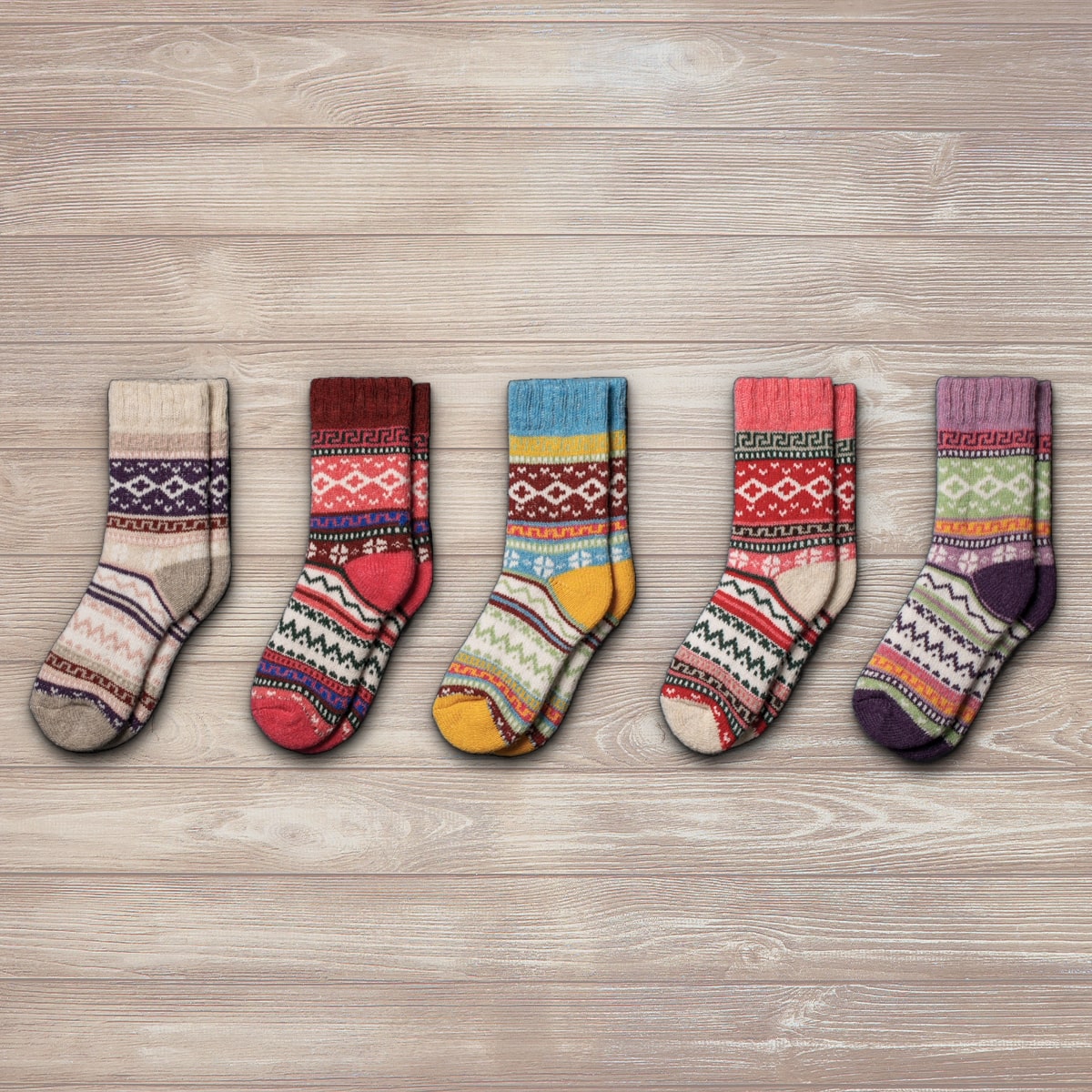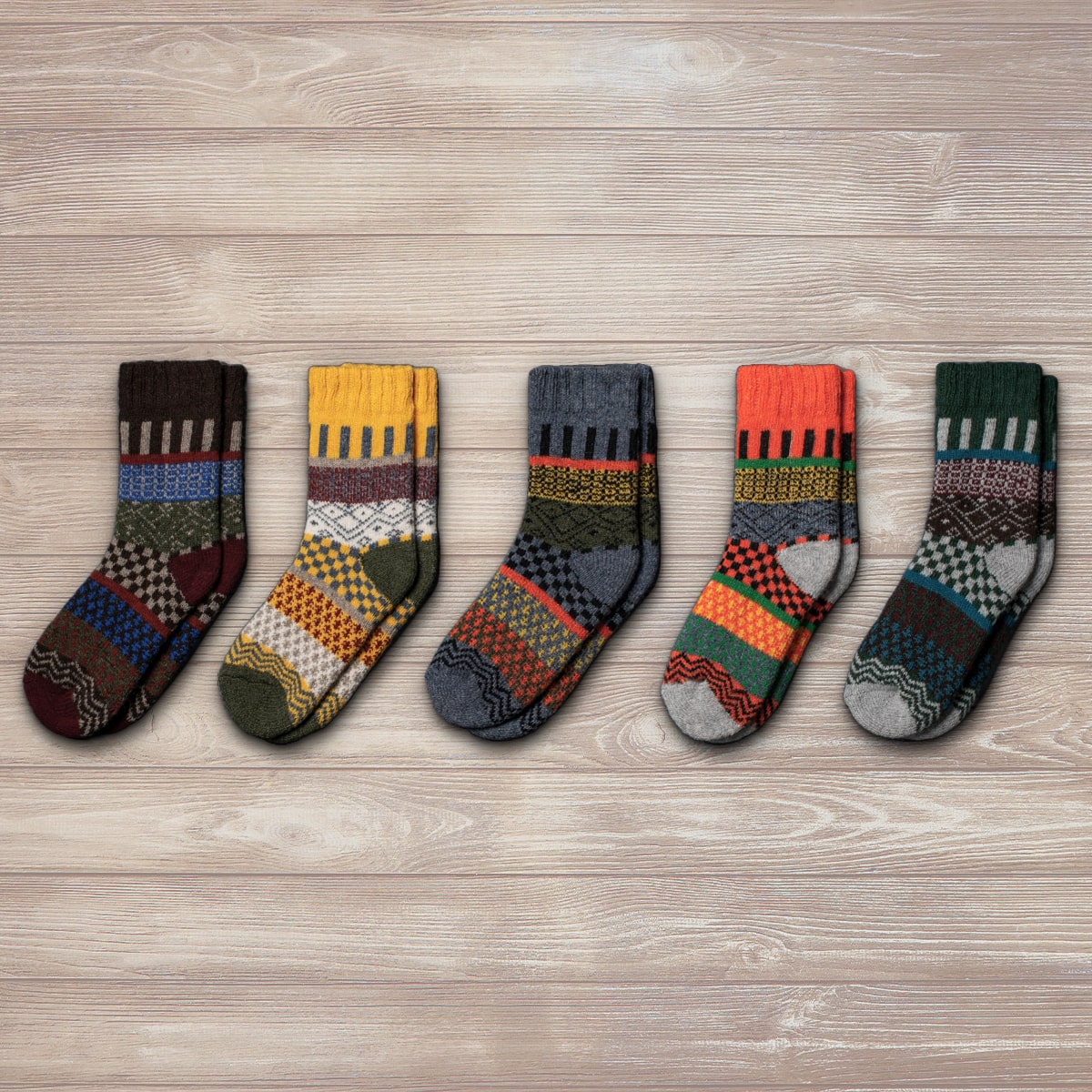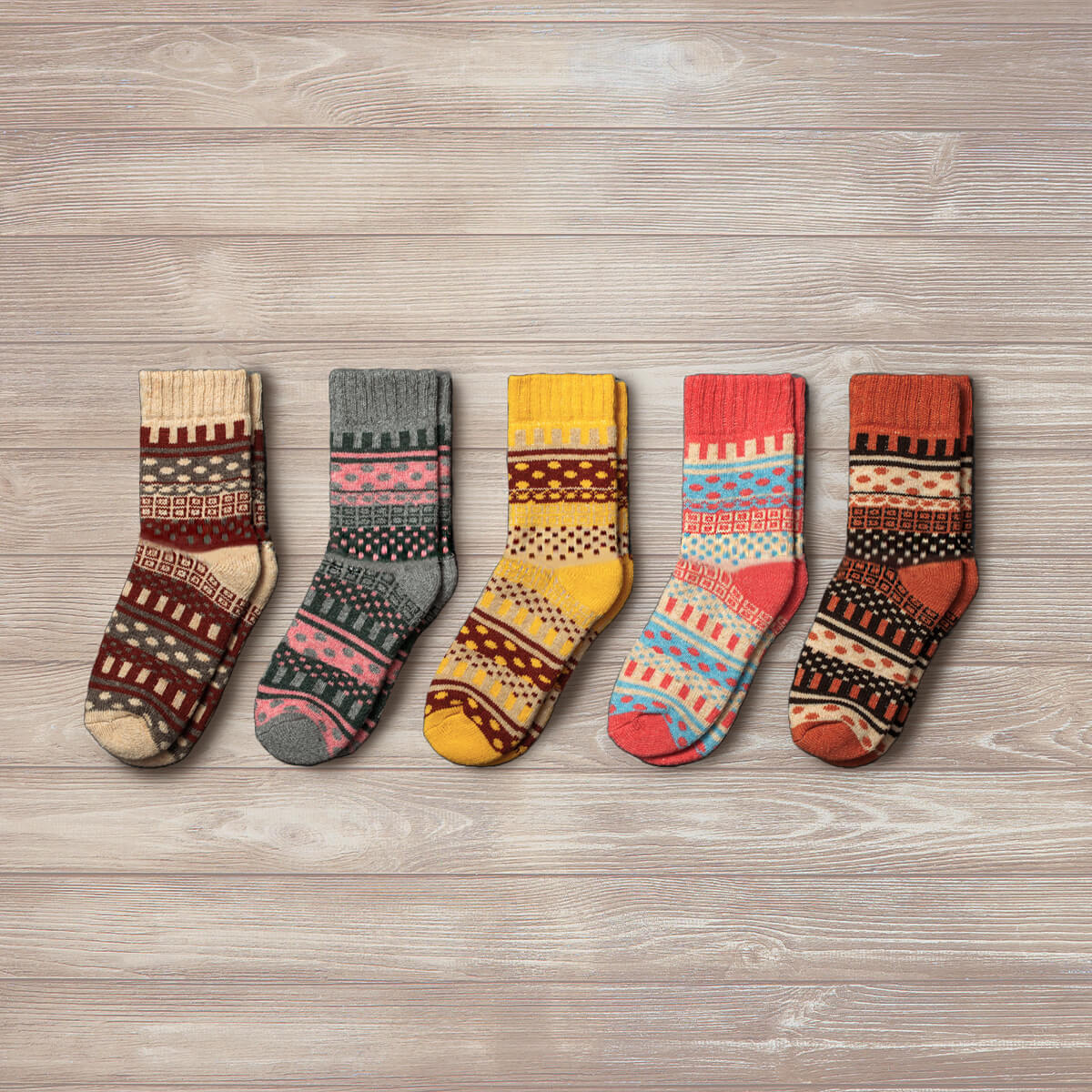Your Cart is Empty

10 Benefits of Wool Socks for Hiking
Where are we shipping to?
Purchase from your country’s website.
It’s the fastest way to pamper your feet with comfy socks.
Besuche unseren Schweizer Shop
Besuche unseren Schweizer Shop

5 min read
When it comes to outdoor adventures, the choice of your socks can make all the difference in the world. Hikers and outdoor enthusiasts have long celebrated the remarkable properties of wool socks. Here, we present the top ten benefits of wool socks that should be on your radar for your next trek into the great outdoors.
While cotton is often hailed as the softest fabric, wool is not far behind. Woolen fibers possess a natural plushness and suppleness that keep your feet comfortable throughout the day. The crimp and curl of wool fibers contribute to their softness. Worried about itchiness? Opt for Merino wool socks, renowned for their exceptional softness and comfort.
Wool is a natural fabric known for its impressive durability. Its fibers can endure over 20,000 bends before breaking, making it nearly seven times more resilient than cotton. This durability makes wool a favored choice for crafting high-performance socks. For example, our Merino wool BJØRN set is an ideal companion for demanding outdoor activities.
Wool socks are almost as lightweight as cotton, making them perfect for multi-day treks. Furthermore, the springy nature of wool fibers allows for the creating of both winter-appropriate and lighter socks suitable for warm weather.
Cotton socks may provide some insulation, but their protective qualities diminish when they get wet. Here's where wool socks shine. Their unique fiber structure traps heat close to the skin, even in wet conditions. This makes wool socks, particularly those crafted from Merino wool, an excellent choice for keeping your feet warm in cold weather.
Cotton socks tend to absorb moisture swiftly, leading to discomfort, blisters, and potentially fungal infections. In contrast, wool socks can retain up to a third of their weight in moisture before feeling wet. This feature makes them an excellent option for hiking in damp or humid environments. Wool fibers' unique structure resists moisture, staving off odors and bacteria buildup, ensuring your feet stay dry and healthy during outdoor activities.
In an era where environmental consciousness is paramount, natural fabrics are hailed as a more sustainable clothing option. Wool is an excellent alternative with numerous sustainable benefits, including biodegradability, recyclability, and rapid renewability. Opting for wool socks not only showcases your eco-friendly stance but also ensures durability, reducing your carbon footprint in the long run.
Wool socks offer more than just comfort. They boast antimicrobial properties that stave off unpleasant odors. A thin, waxy coating on wool fibers contains fatty acids that inhibit the growth of bacteria. Wool's water-repellent nature further deters mildew and mold. Unlike synthetic fibers, woolen garments don't necessitate frequent washing and continue to exude freshness even after repeated use. In contrast, cotton retains moisture and exacerbates foot odors over time, making wool the superior choice for outdoor activities.
Despite cotton's softness, it has a significant drawback—it stretches and sags over time, resulting in a shorter lifespan for cotton socks. Wool fibers, on the other hand, are dense and thick, maintaining their shape over extended periods. Choosing wool socks ensures they stay in good condition for longer, reducing the need for frequent replacements.
Wool socks not only outperform cotton in strength but also provide a gentle, protective barrier for your feet. They effectively absorb friction and cushion your skin, making them ideal for extended physical activity or hiking. Unlike cotton, which can cause chafing and blisters, wool keeps your feet comfortable even during extended adventures.
As stated above, wool socks possess a distinct advantage over cotton—antimicrobial properties. Unlike cotton, they don't demand washing after every use. This is due to the fatty acids enveloping each wool fiber, which repel mold, mildew, bacteria, dirt, dust, and lint. Additionally, wool's scaly surface resists stains and sweat absorption. This makes wool socks perfect for extended camping trips where washing facilities may be scarce.
However, it's worth noting that wool socks require gentle handwashing, as they can be easily damaged by friction, soap, and heat. Yet, investing in high-quality wool socks pays off in the long run. While they may demand more care, they reciprocate by taking great care of your feet.
While cotton has its merits, wool's advantages are clear and compelling. When selecting socks for your outdoor escapades, thoughtfully consider your needs. Should Merino wool socks align with your requirements, rest assured—Nordic Socks has you covered. Your feet and your adventures will thank you.
Wool socks can be an excellent choice for everyday wear, especially if you value comfort, moisture management, and odor resistance. However, it's essential to choose the right type of wool, consider the prevailing weather conditions, and be prepared to care for them properly to maximize their benefits. Merino wool, in particular, is highly regarded for its softness and suitability for everyday wear.
Wool socks can be too hot for summer, depending on the type of wool and the specific weather conditions. But not all wool is the same. Merino wool, for example, is known for its fine fibers and breathability. Merino wool socks are often more comfortable in warmer weather than socks made from coarser wool varieties.
Yes, Merino wool is real wool. Merino wool is a type of wool that comes from the Merino breed of sheep. It is highly regarded for its fine, soft, and luxurious fibers. These fibers make it a popular choice for various clothing and textile products, including socks, sweaters, base layers, and more.
Merino wool is prized for its natural properties, including excellent moisture-wicking abilities, temperature regulation, and odor resistance. It is often used in outdoor and athletic clothing because it can keep you warm in cold conditions while also providing breathability and comfort in milder temperatures.
So, in summary, Merino wool is a genuine and valuable type of wool sourced from Merino sheep, known for its quality and versatility in various applications.
Wool socks are not just for winter; they can be worn year-round, depending on the specific type of wool and the activities you have in mind. Some people choose to wear wool socks as part of their daily wardrobe, regardless of the season, due to their comfort, durability, and odor-resistant properties.
Felix has dedicated over four years of his career to fashion journalism, primarily focusing on socks-related topics. He has covered many subjects, including the latest sock trends, the evolution of sock technology, and innovative designs revolutionizing the sock industry.
Join our email list and get exclusive offers and 10% off on first order.
 Are wool socks good for summer?
Are wool socks good for summer?  The Cultural Inspiration Behind Our Sock Designs
The Cultural Inspiration Behind Our Sock Designs  How to Care for Cotton Socks
How to Care for Cotton Socks  Wool vs Cotton Socks for Hiking: Which is the Best Material for Hiking Socks?
Wool vs Cotton Socks for Hiking: Which is the Best Material for Hiking Socks?  Foot Health: How Nordic Wool Socks Support Your Wellbeing
Foot Health: How Nordic Wool Socks Support Your Wellbeing Sign up to get notification about new articles, special offers and new products.
Get the newsletter to receive direct information about offers and new products.
Purchase from your country’s website.
It’s the fastest way to pamper your feet with comfy socks.



















